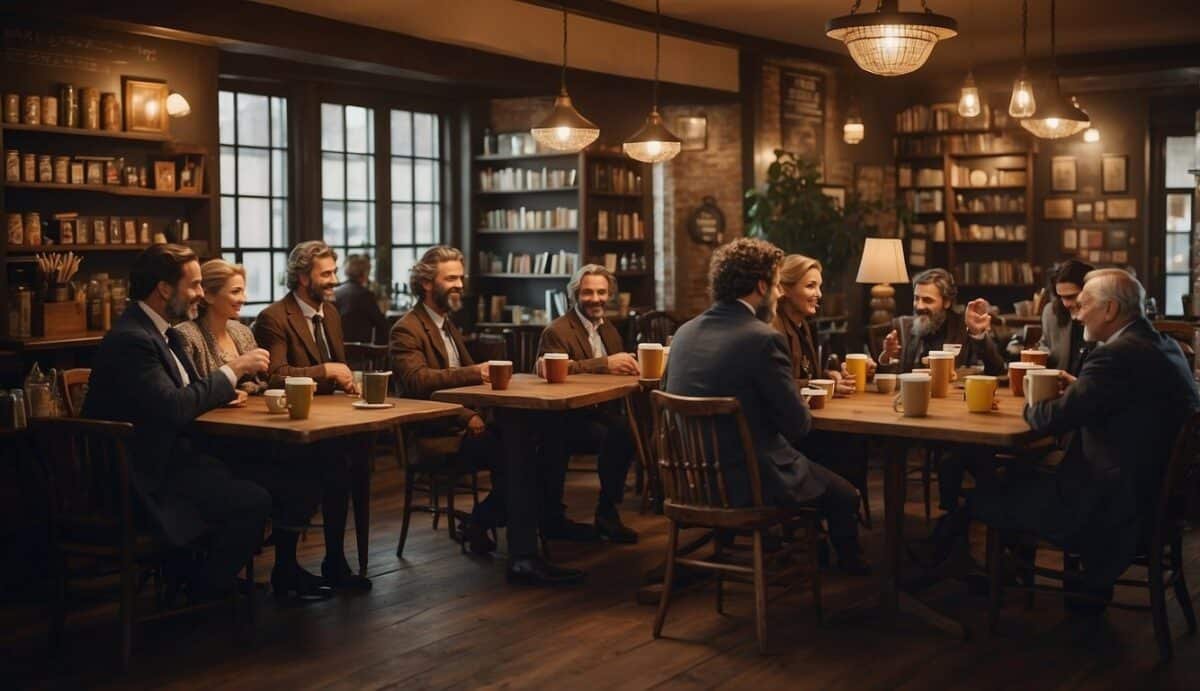Coffee has shaped cultures and sparked creativity throughout history. It’s more than just a beverage; it has been a source of inspiration and a companion to many significant figures who have left their mark on the world. From the writings of literary giants to the discussions of political leaders, coffee has been a silent witness to the birth of ideas that have propelled humanity forward.
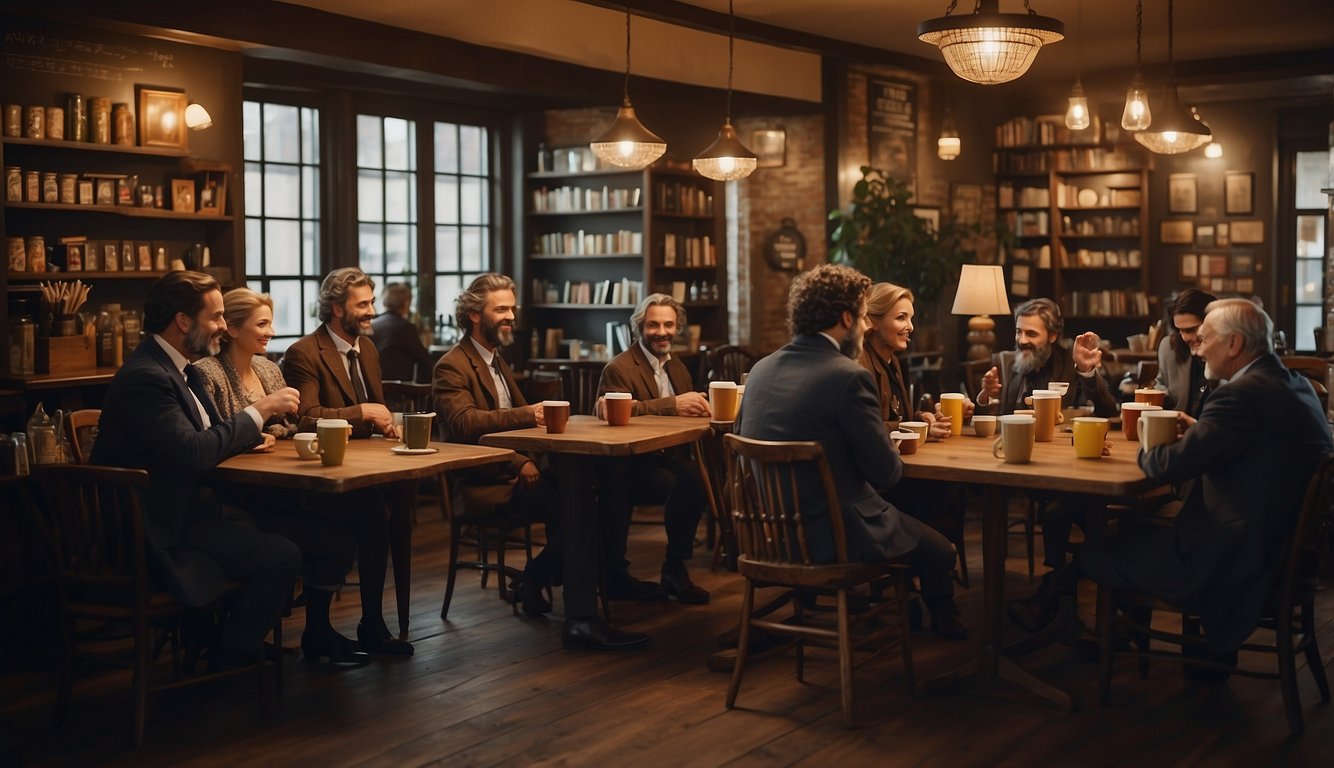
The historical context of coffee consumption stretches back centuries, with coffee houses emerging as centers of social and intellectual activity. These establishments often attracted influential thinkers, writers, and innovators who enjoyed coffee’s stimulating effects. The arts and sciences, politics, and even the age of exploration have all been touched by this humble drink, making it a thread in the tapestry of global development.
Key Takeaways
- Coffee has played a role in various cultural and intellectual movements.
- Significant historical figures often incorporated coffee into their routines.
- The drink has been linked to innovation and social evolution throughout the ages.
Historical Context of Coffee Consumption
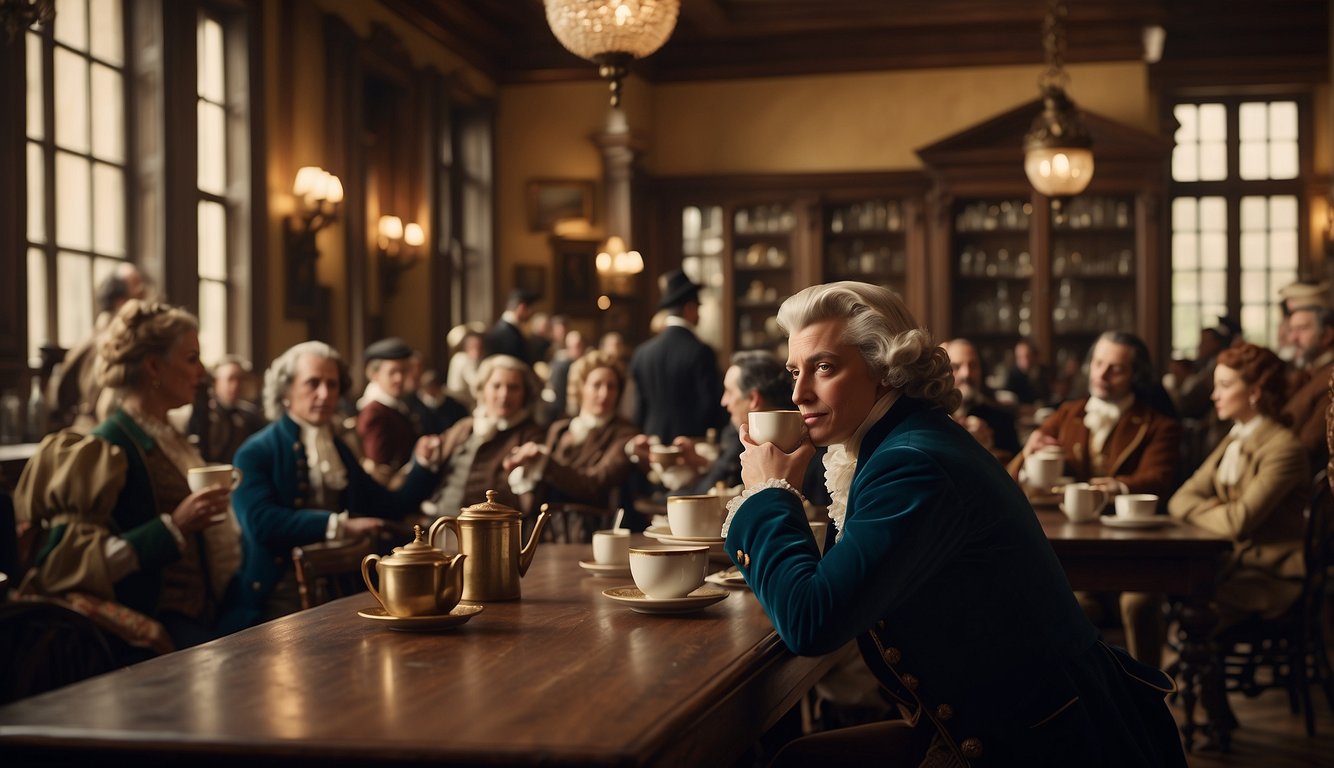
Coffee consumption has deep historical roots. The first coffeehouses, known as qahveh khaneh, began in the Middle East. In the 15th century, these establishments were vital in cities like Mecca.
By the 16th century, coffee had reached Constantinople, now known as Istanbul. These coffeehouses weren’t just places to drink coffee; they also hosted various social activities. Individuals gathered there to play games, enjoy music, and discuss the day’s events.
Coffee’s popularity spread quickly, impacting various cultures and societies. As it traveled from Ethiopia, its consumption became widespread across the Arab world. Trading played a crucial role in coffee’s dissemination.
The beverage eventually took Europe by storm in the 17th century. It became a staple in many European societies. Across the Arab world and Europe, coffeehouses became centers for intellectual and cultural exchange.
This drink also found its way into the English language by 1582. The word “coffee” comes from the Dutch “koffie,” derived from the Arabic “qahwah”. Understanding coffee’s history can provide insight into its role in modern society.
Influential Coffee Drinkers in Literature
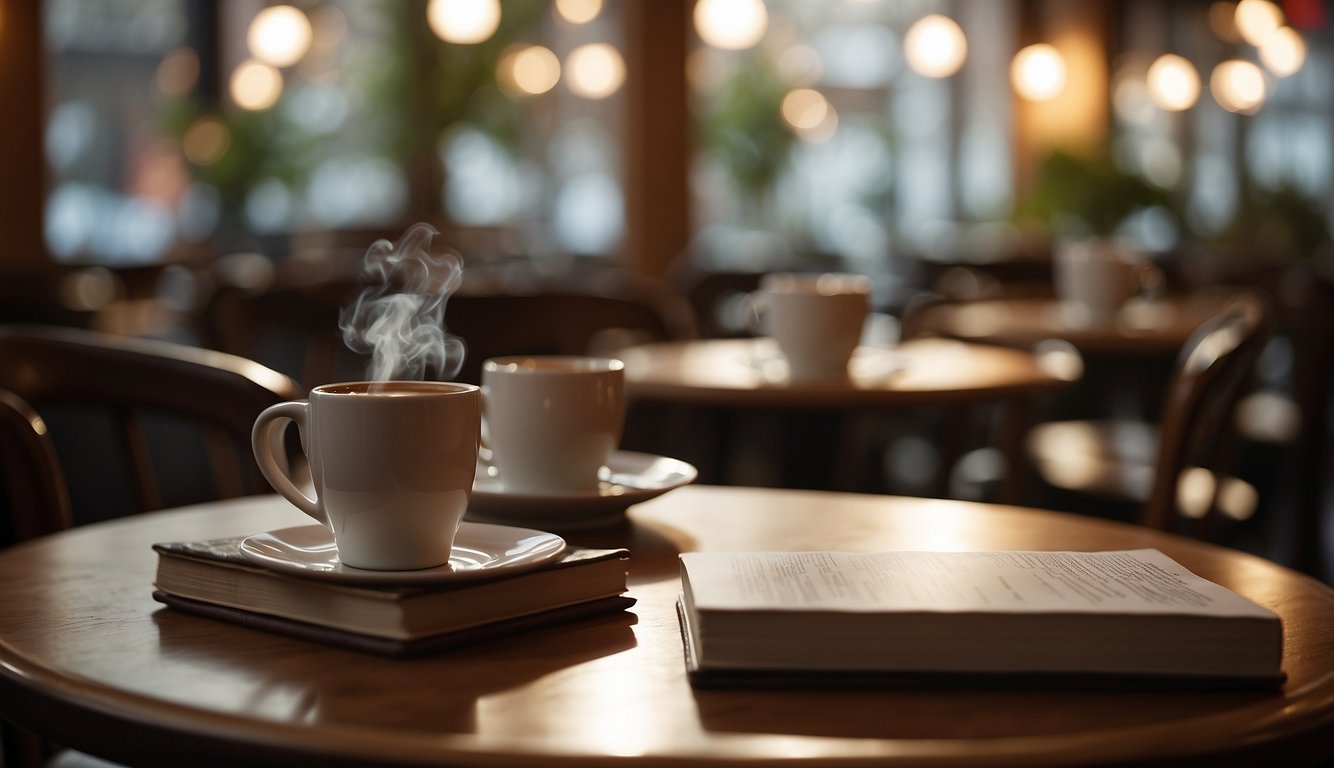
Johann Sebastian Bach was an avid coffee enthusiast. He even composed The Coffee Cantata reflecting his love for the beverage.
In France, Honoré de Balzac‘s coffee consumption was legendary. He was known for drinking vast amounts of coffee, which he believed fueled his creative output. His work, La Comédie humaine, is a prime example of his literary achievements.
Voltaire, another French writer, had an impressive coffee intake. Reports suggest he drank 40-50 cups daily, a mix of chocolate and coffee.
The consumption of coffee has also been a notable theme in literature. It has played a role in setting scenes for social interaction and providing a backdrop for intellectual conversations in many books.
| Author | Coffee Habit |
|---|---|
| Johann S. Bach | Composed an opera about coffee. |
| Honoré de Balzac | Drank coffee excessively to boost writing. |
| Voltaire | Consumed 40-50 cups of coffee and chocolate mixture daily. |
These authors shared a strong connection with coffee. They are remembered not only for their contributions to literature but also their remarkable coffee consumption habits. Coffee’s place in the literary world is more than just a beverage; it is a cultural icon, often intertwined with the life and works of writers.
Political Figures and Coffee

Coffee has been a popular beverage among political figures throughout history. This drink has often been present during important political discussions and decision-making processes. Martin Luther King Jr., a significant figure in the civil rights movement, was known for his devotion to activism. He valued the role of coffee in his work and long meetings.
Several political leaders have been noted for their coffee consumption. For example, Sultan Murad IV of the Ottoman Empire had a notorious stance on coffee, going as far as imposing severe penalties for its consumption. His approach highlights the complex relationship between coffee and politics.
Below is a list of political figures who had a particular fondness for coffee:
- Martin Luther King Jr.: Advocate for civil rights and justice.
- Sultan Murad IV: Enforced strict bans on coffee.
Coffee’s place in the political sphere is solid. It is a beverage tied not only to personal preference but also to cultural and political attitudes. This connection underscores its importance in historical and modern political contexts.
Coffee in the Arts and Sciences

Coffee has had a significant impact on the arts and sciences. Famous historical figures well-known for their contributions in these fields often turned to coffee as a source of inspiration and alertness.
In the realm of music, Johann Sebastian Bach, a prolific composer, not only enjoyed coffee but also dedicated an entire composition to it. His “Coffee Cantata” humorously explores the coffee obsession of the time. The famed Baroque composer became known for weaving his love of coffee into his musical legacy.
Writers found coffee indispensable as well. Voltaire, the French philosopher and writer, was infamous for his coffee consumption. Reports suggest he drank up to 50 cups a day, blending coffee with chocolate. Despite concerns for his health, he lived to the age of 83, showing a remarkable resilience. He is recognized for his sharp wit and contributions to enlightenment philosophy. His coffee habit is often cited when discussing coffee in historical contexts.
Artists have also been influenced by coffee. For instance, Vincent van Gogh expressed coffee scenes in his artworks. The famous painter, known for his vivid colors and emotional honesty, often frequented cafes and depicted them in his art. Van Gogh’s relationship with coffee can be seen as part of his larger exploration of society and emotional expression.
In each of these cases, coffee was more than just a beverage; it played a role in the creative and intellectual processes that shaped culture and knowledge.
Coffee and Exploration
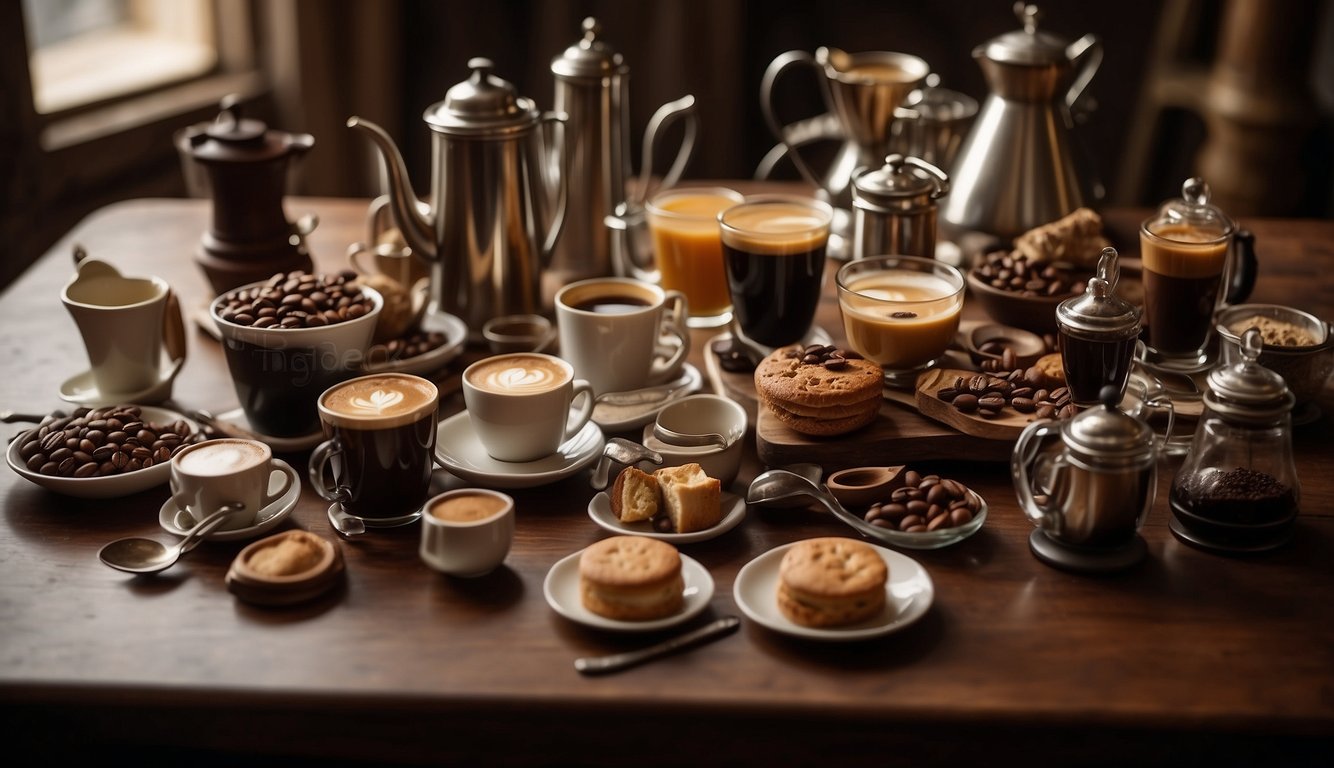
The history of coffee is deeply intertwined with exploration. It starts from its discovery in Ethiopia to its journey across the world. Explorers and travelers played a key role in spreading coffee.
Ethiopia is recognized as the birthplace of coffee, with the story of Kaldi, a goatherd. Kaldi noticed his goats became energetic after eating coffee berries. From Ethiopia, coffee seeds were taken to Yemen and planted. This started the first coffee cultivation outside Ethiopia in the 15th century.
During the age of exploration, European travelers brought coffee back from their journeys. They introduced coffee to new lands, including Europe. Here, it quickly became popular. Coffee houses opened, becoming centers for sharing news and ideas. Many believe that these coffee houses helped spark the Enlightenment.
With the growing demand for coffee, European powers started plantations in colonies. They planted coffee in the Caribbean, South America, and Asia. For example, the Dutch established coffee plantations in Java, Indonesia. As a result, “Java” became a nickname for coffee.
Coffee’s popularity continued to grow, making it a global commodity. Today, it is enjoyed worldwide and is integral to many cultures. Its journey is a tale of the adventurous spirit and the quest for the perfect cup.
Industrial Revolution and Coffee Innovators
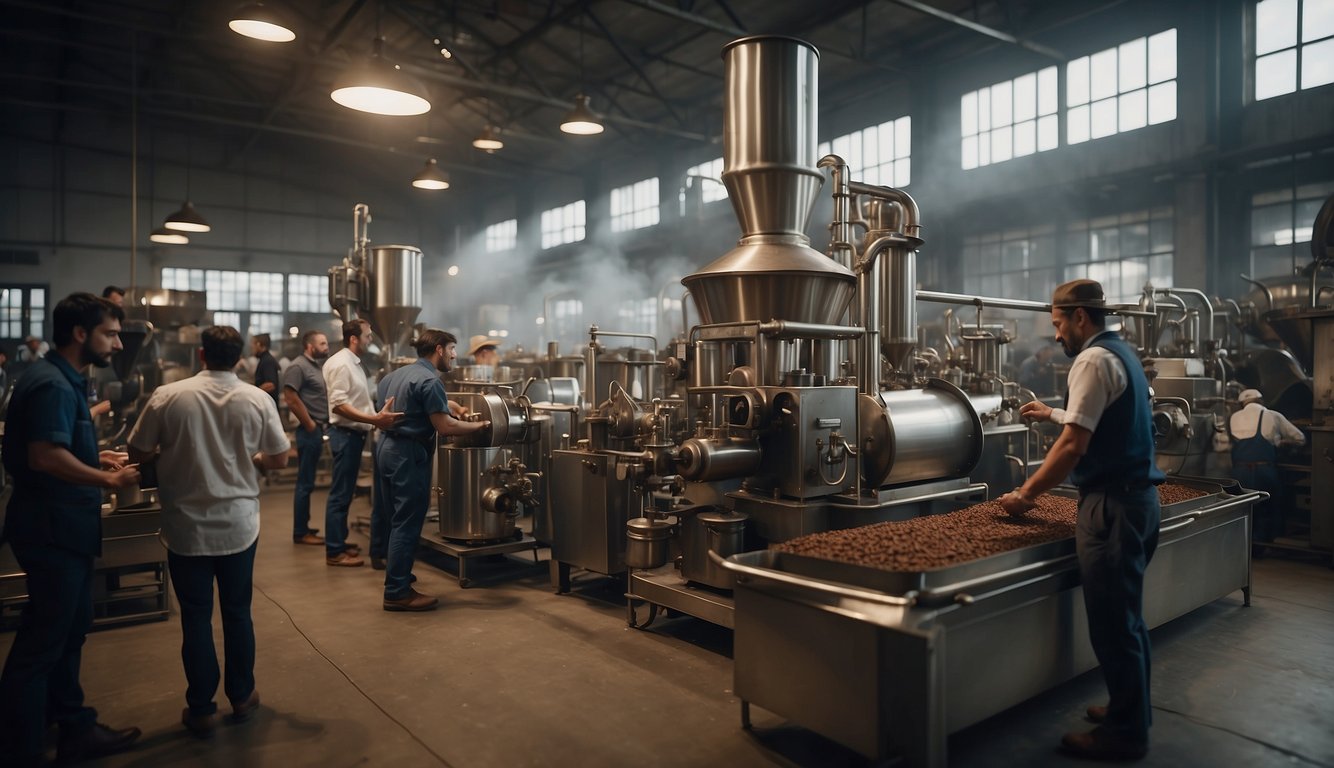
During the Industrial Revolution, coffee was more than just a beverage. It was a catalyst for change and innovation. James Watt, known for his work with steam engines, may have spent countless hours refining his inventions powered by a simple cup of coffee.
In France, coffee facilitated intellectual gatherings. Voltaire, a famous writer, was known for his caffeine enthusiasm, reportedly drinking 40-50 cups per day. His sharp wit and prolific writing possibly owed much to his coffee consumption.
| Coffee Innovators | Their Contribution |
|---|---|
| James Watt | Steam Engine |
| Voltaire | Literature |
In Britain, coffee houses became the hubs of discussion and idea exchange that fueled technological progress. Here, entrepreneurs and thinkers like Isaac Newton discussed scientific theories while sipping on coffee.
The era also saw advancements in coffee production and distribution. Such progress made coffee more accessible than ever. This allowed more people to indulge in coffee, fostering a more alert and industrious workforce.
Contemporary Cultural Icons and Coffee Habits
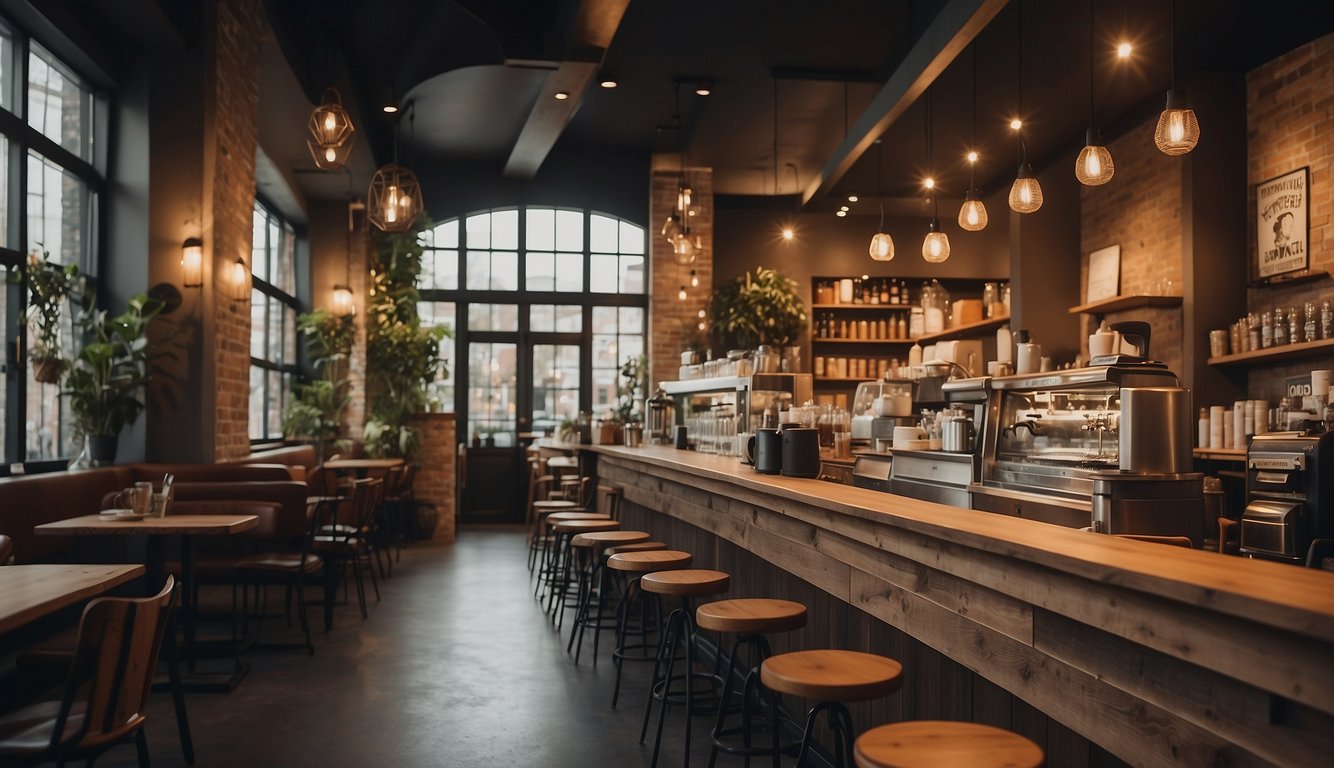
In recent years, coffee has become more than just a beverage—it’s part of many people’s identity. Celebrities often share their coffee habits, influencing fans around the world. Johann Sebastian Bach, though from an earlier era, was well known for his love of coffee. Today, he would fit right in with modern coffee enthusiasts.
| Icon | Coffee Preference |
|---|---|
| Bach | Traditional brew |
Lady Gaga is another figure who has shown a love for coffee. Her preference for a simple cup, rather than elaborate concoctions, aligns with classic coffee culture. Her choice tells fans that sometimes, simplicity is key.
| Icon | Coffee Preference |
|---|---|
| Gaga | Simple cup |
Lastly, Taylor Swift has been seen enjoying her morning brew on numerous occasions. She usually opts for a latte. Her coffee habit resonates with many fans who also start their days with this frothy drink.
| Icon | Coffee Preference |
|---|---|
| Swift | Latte |
These icons reflect the broad world of coffee consumption. Their habits also show the diversity within coffee culture. It ranges from the straightforward to the complex. Each icon’s preference has its own story, echoing their personal brands and lifestyles.
Frequently Asked Questions
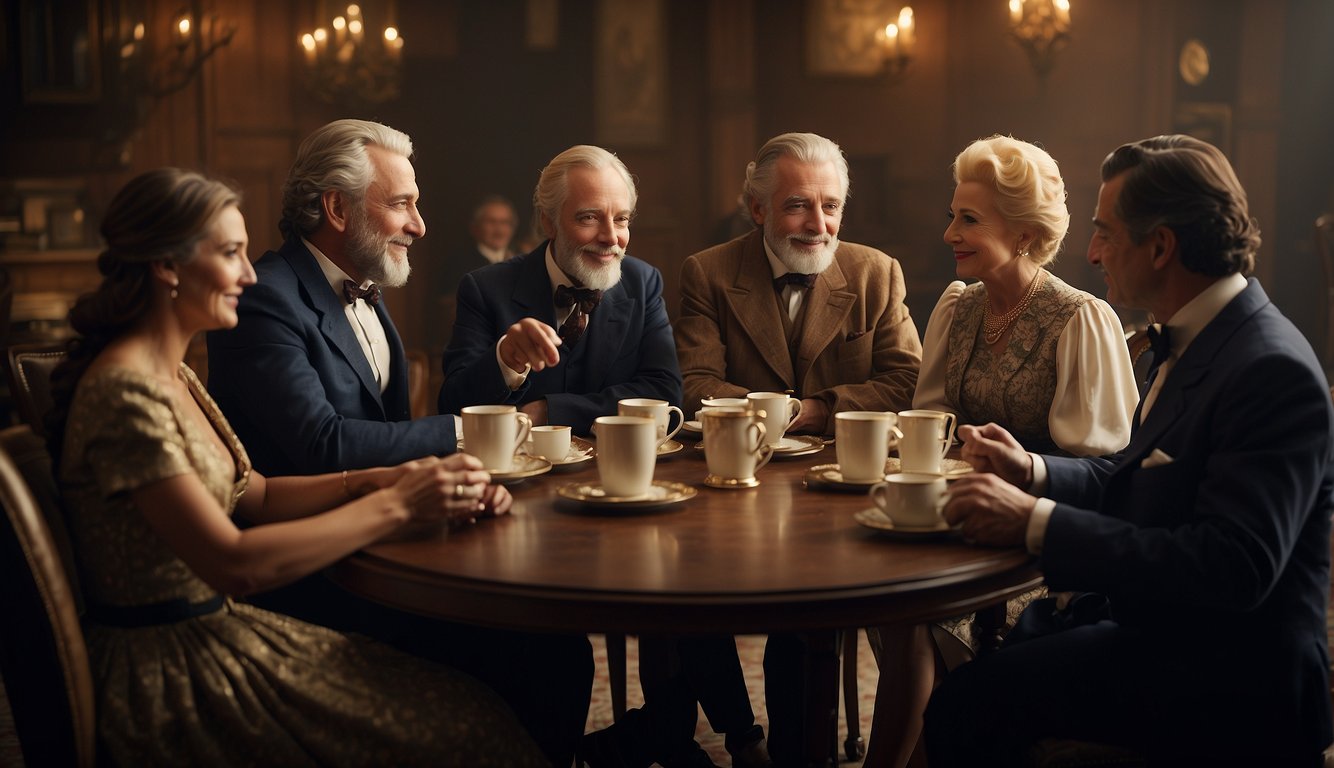
In this section, we explore intriguing facts about historical personalities and their relationships with coffee.
Which historical female figures were known for their love of coffee?
Notable female enthusiasts of coffee include French writer and philosopher Madame de Sévigné. She documented her affection for coffee in her detailed letters.
What was the coffee consumption habit of Voltaire?
Voltaire, the famous writer, was known to consume an astonishing up to 50 cups of coffee and chocolate daily.
Are there any historical records of notable individuals who abstained from coffee?
Yes, there are records of individuals who avoided coffee. Thomas Jefferson, for example, preferred tea over coffee.
Who holds the record for the highest coffee consumption in history?
The record for the highest coffee consumption in history is hard to pinpoint. However, Voltaire’s reported 50 cups a day is often cited as one of the highest.
Can you identify some prominent figures who were recognized for their coffee drinking?
Historically, several prominent figures were recognized coffee lovers. This includes Ludwig van Beethoven, who precisely counted 60 beans per cup for his brew.
What nationality is associated with the highest level of coffee consumption historically?
Historically, the Scandinavians are associated with the highest level of coffee consumption. They have long-standing cultural traditions that embrace coffee drinking.
